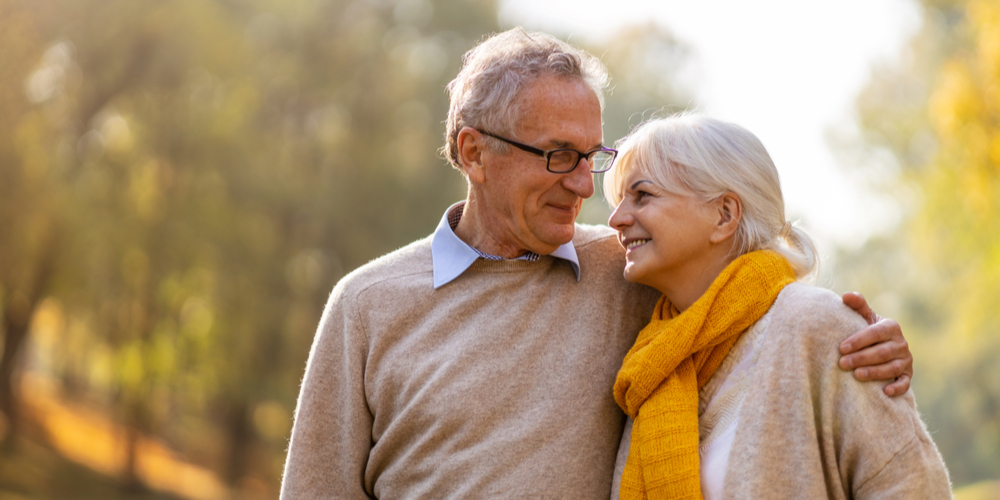
Cornwall has the highest population of older people in the whole of the U.K; the following articles will outline the most common health problems in elderly people and provide advice on how to keep as healthy as possible.
Common health problems
Coughs, colds and flu
Elderly people are vulnerable to contagious infectious illnesses such as coughs and colds as their immune systems are not as strong as younger people’s.
Most coughs and colds ease over time; however it is important to monitor your condition as these illnesses can develop into more serious conditions such as bronchitis and pneumonia; if you feel you may be suffering from a serious illness do not hesitate to contact your GP.
Mild coughs and colds can usually be eased with over the counter pain relief; you should read the labels carefully and seek medical advice if you are already taking medication which may be affected by these medicines.
Flu is particularly common in the winter when it is cold outside; try to keep yourself wrapped up, eat well and drink plenty of fluids in order to reduce the likelihood of catching flu.
Some elderly people who may be particularly vulnerable to flu may be offered a flu vaccination; this will help to protect against catching the flu virus.
Heart disease
Heart disease is common in the elderly, as the heart is under increased strain to pump blood around the body and the body is more susceptible to catching illnesses which may have a detrimental knock-on effect.
Heart disease may be characterised by angina, heart attacks and heart palpitations.
Angina is particularly common in older people; it can usually be treated with medication but may limit the activities an individual can undertake and cause discomfort.
Strokes
Strokes are commonly caused by blood clots and haemorrhages and can be extremely serious and potentially fatal.
Strokes usually affect speech and muscle movement; if you think you are having a stroke try to dial 999 as quickly as possible or seek the help of somebody around you.
Arthritis
Many older people suffer with arthritis which is a condition which affects the joints and bones.
Common symptoms of arthritis include stiffness, a decreased range of movement and swelling around the bones and joints.
Treatments may include pain relief, anti-inflammatory medication and physiotherapy.
Vitamin and mineral supplements, such as cod liver oil, may be beneficial for those suffering from arthritis.
Osteoporosis
Osteoporosis affects a lot of older people, especially women.
This condition leads to the deterioration of bone mass and can cause brittle and fragile bones and a permanent change in the shape of the bones; a hunched back is the most common example of this.
It is recommended that people who are at risk of developing osteoporosis take calcium supplements and eat a healthy diet.
Post- menopausal women, who are vulnerable to developing the condition, may be offered a course of hormone replacement therapy (HRT) to help reduce the risk of getting osteoporosis.
Mental illnesses
Mental conditions such as dementia and Alzheimer’s disease are common in old age and may dramatically impact upon both the lives of the individual involved and their family.
People who are suffering with mental conditions will need greater support and care; this can usually be provided by their relatives or can be arranged by Social Services.
Mild mental conditions may be characterised by memory loss, confusion and anxiety.
Dental health
Teeth become much weaker as people age and many older people find they have few of their own teeth remaining; nowadays, technology has advanced to such an extent, that restorations and implants are a comfortable, light and natural-looking replacement for the original set of teeth.
Elderly people are advised to visit the dentist regularly to check both their original and replacement teeth; dentures and implants should be cared for in the same way as original teeth.
Older people who live in homes will usually be able to access local community services, which will carry out home visits.
Keeping healthy
The most important thing to remember when considering your future health is to choose to live a healthy lifestyle as early on as possible; having a healthy and balanced diet, exercising regularly and looking after your body throughout adolescence and adulthood will make old age much more pleasant and stand you in good stead to live a long and healthy life.
Exercising can be difficult in old age so it may be necessary to switch to gentler activities, such as walking or swimming.
As you get older it may also be more difficult to prepare and cook a range of healthy meals and you may find it beneficial to take vitamin and mineral supplements to accompany your normal meals and boost your immune system.
